This story originally appeared in i-D’s The New Worldwi-De Issue, no. 363, Summer 2021. Order your copy here.
To say that it’s been a tough year would be an understatement. For emerging musicians – whom the industry dictates must perform gig after gig in order to both build a following and make money (the unjust amounts earned from streaming platforms mean concerts typically make up a significant portion of their revenue) – it’s been especially difficult. The pandemic has warped reality, with livestreams becoming the norm and whole hosts of artists breaking out into the music world without ever having climbed onto a stage.
These 12 new artists are not only persevering despite an industry in flux, they’re thriving. Having used the downtime to develop themselves and their work, they’re emerging out the other side into a summer of relative normality, festival bookings and all the collaborative studio sessions they could ever dream of. Though divided by genres and oftentimes cities, this lot are united in their originality and talent, and we’re convinced you’re going to love them.
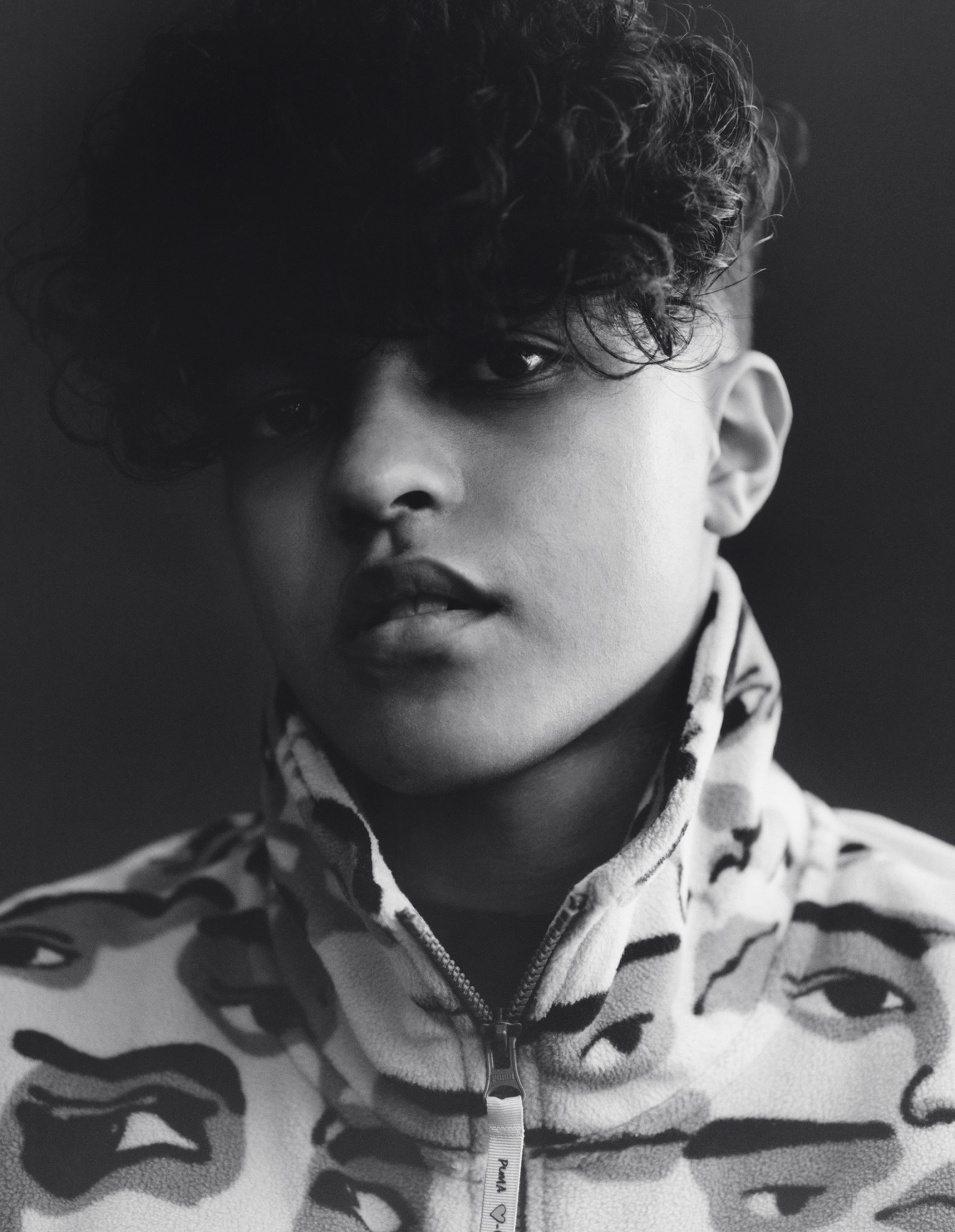
Kamal
Kamal has been called all manner of things but “Britain’s answer to Billie Eilish” is probably the best. Hailing from Harlesden in North West London, the 18-year-old makes R&B-leaning bedroom pop that he describes as “mostly sad, even when it sounds happy”. He edged his way onto our radar last spring with his introverted single homebody, just in time for the global pandemic and for the world to relate to lyrics about wasted potential, uneventfulness and staying at home. “Things have been pretty stagnant with Covid and I haven’t been able to experience a response to my music in any tangible way,” he says. “But I’m hopeful I can do that soon.”
The mononymous artist has been hooked on music since he learnt the ukulele in primary school, and inspired by everyone from Robert Glasper and Keaton Henson to his best friends, Kamal is driven to succeed by the love he feels surrounded by. “Both listening to and making music are definitely emotional outlets for me,” he notes. Having fully utilised that outlet over the past year, fresh from lending his close vocals to Dave’s Mercury, Kamal is plotting the release of his first EP, something that “sounds a little different to my previous stuff, and that I’m really proud of”. As for long-term plans, he tends not to make those. “I feel like other goals can sometimes get in the way of the art. I just want to continue making music.”
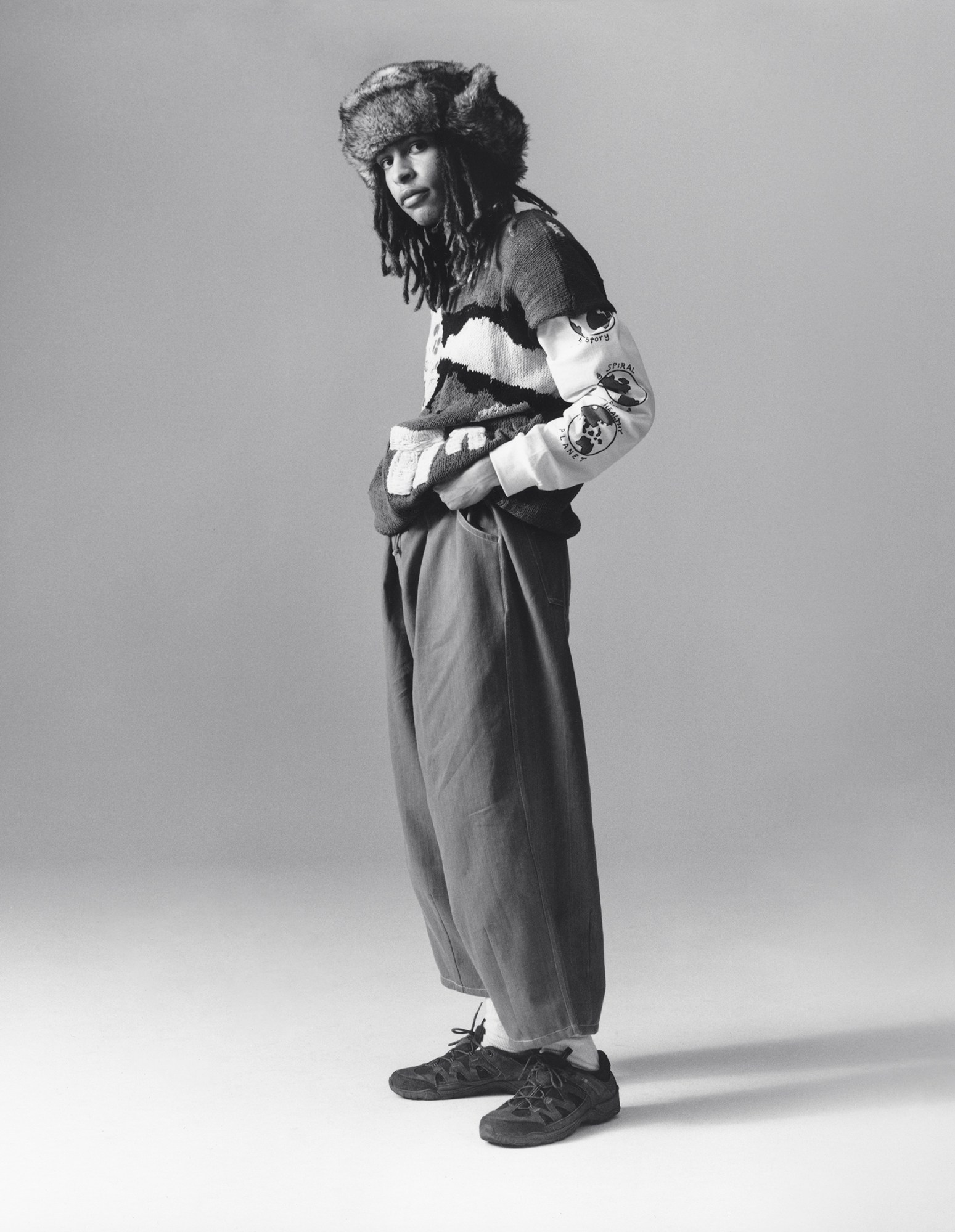
Podge
Podge can solve a Rubik’s Cube in 30 seconds. His record was 22, but that was years ago and he’s out of practise. Born and raised in The Wirral, the music production grad makes “the kinda shit you’d expect some kid who watches anime and really likes JPEGMAFIA to make”. His playful NTS-released Samuso EP is a chaotic collection of lo-fi, sample-heavy sonic adventures topped with his half-rapped, half-sung lyrics. He credits Ping Pong the Animation by Masaaki Yuasa, video games and contemporary art as his major inspirations. His spirit guide, however, is Japanese producer Cornelius, whose mid-90s record Fantasma is a cult classic.
“I was really stuck in the noodly math rock guitar realm and then one day I heard Fantasma and it completely changed my view of music,” Podge says. “It showed me that hip-hop wasn’t the only genre that was allowed to use samples, and taught me that as long as it sounds good to you, then it’s good.” While for a long time the northerner saw music as simply “making cool sounds”, he’s since begun to use the medium as “a way to make sense of my feelings without having to talk to someone about them”. Podge is still making cool sounds though, as evidenced across social media, where you’ll find him breaking down his mad scientist approach to music-making via collage-like tutorials, sampling Arca here and Zelda: Breath of the Wild there.
“I’m really just in my own corner, doing my own little thing and tryna keep outta trouble,” he says. “When you’re working towards something bigger than yourself, any situation can feel hopeful because you know that, even if you’re fucking up in the moment, you’re always laying down another brick and that eventually you might just have a wall.”
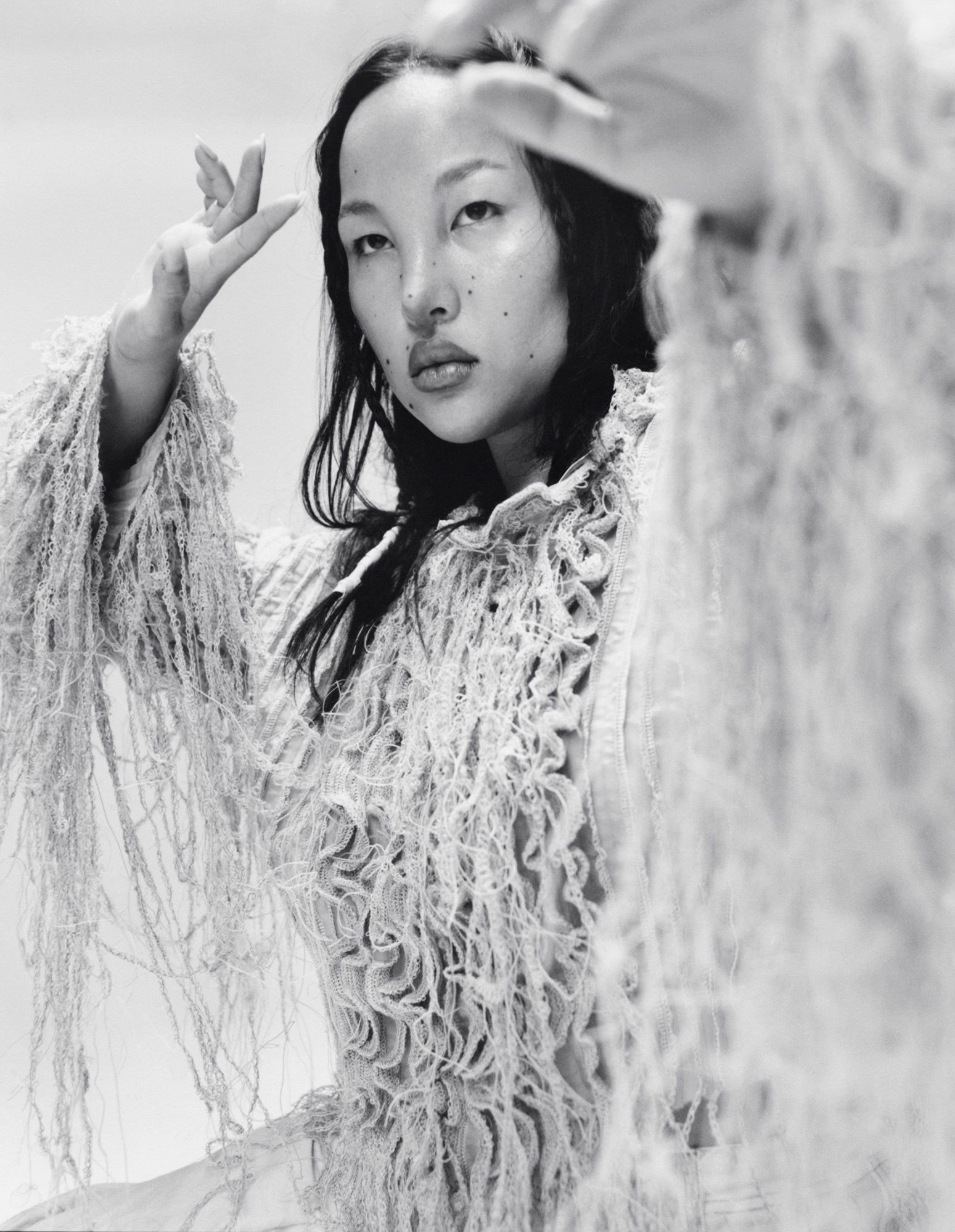
Tsunaina
“Where I grew up, in Nepal, there’s this deep gorge with a river cutting through it,” Tsunaina tells us. “There are ancient forests, temples and monsoons, and masses of people and endless fields.” It’s not surprising that the London-based multidisciplinary artist and model counts her homeland as one of her biggest influences, nor that the natural world inspires what she calls her “organic opera” — music across which her ethereal vocals dance with the sound of a harp, sarangi and gamelan. It will stir something within you, something not dissimilar to “the power, the overwhelming emotion” Tsunaina felt on experiencing Sanjay Leela Bhansali’s epic Bollywood film Devdas for the first time as a child.
Following her stunning, self-directed music video for Waterways — shot in the English Lake District, with Tsunaina performing beneath a waterfall like some sort of river deity in custom ASAI — she’s currently preparing to release her as-yet-unnamed debut EP. “At its core, it’s a storybook of growing pains as a woman of colour, as an immigrant, as a daughter, as a lover,” she says. “I want it to be a testament to the power of confronting your demons and the emotional catharsis that comes with it.” There are live performances on the horizon, too, the prospect of which Tsunaina’s heart can’t handle. “I think you’ll meet me at my most vulnerable,” she says of the project. “It feels beautiful and searing to take in that first breath of air. It feels like hurtling towards new, exciting, unknown things.”
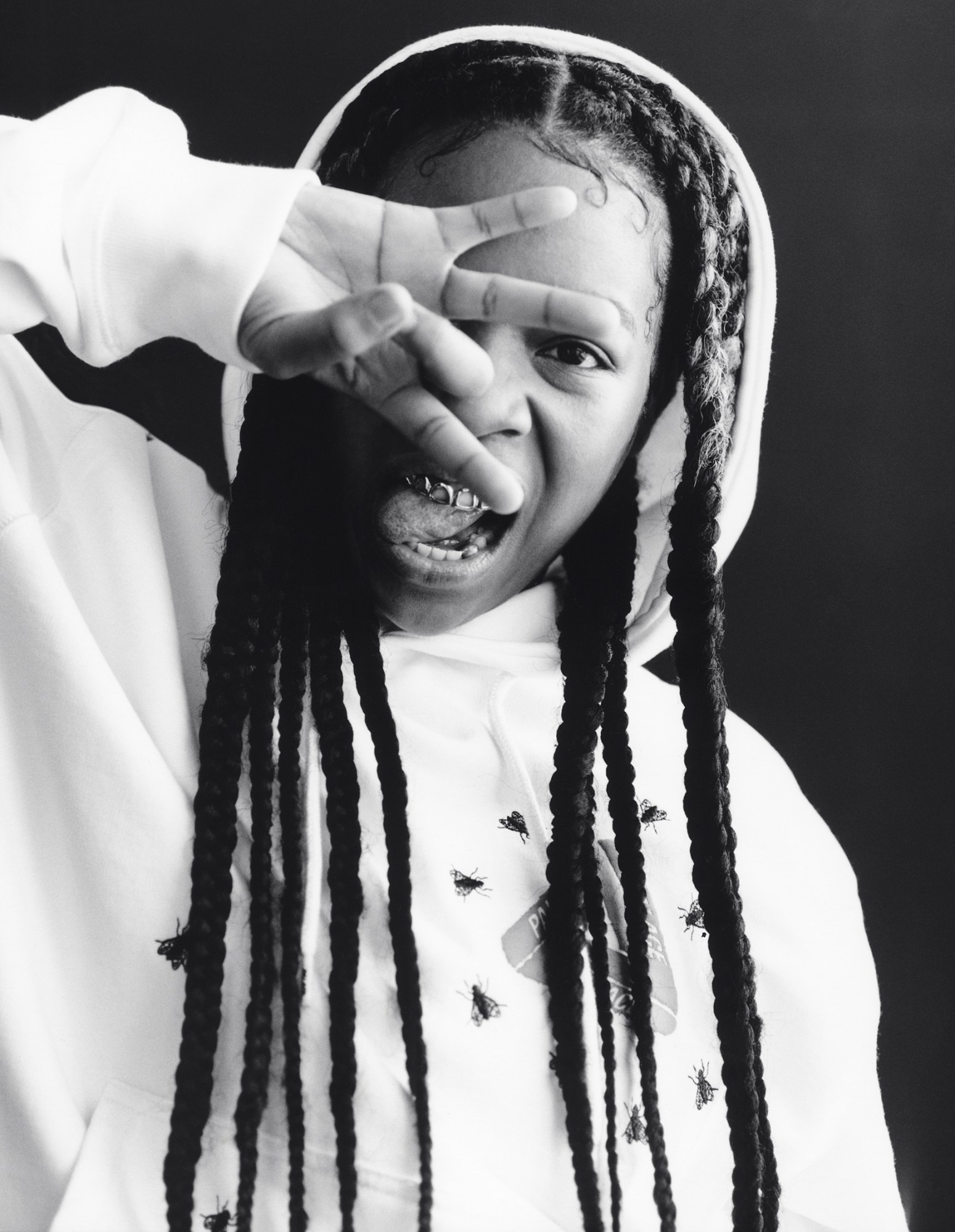
Scuti
Scuti named herself after UY Scuti, a massive star 1000 times bigger than our sun. “I always knew I was going to be a big star, so the name made sense,” she explains. The Londoner dropped her debut mixtape, This Is Skoo in summer 2020, blending influences from across grime, UK drill and trap. “It painted a very real picture of me,” she says of her laidback flow and the Channel U aesthetic of her videos – the latter inspired by a childhood spent watching the elders in her family worship the music channel responsible for broadcasting grime into UK homes in the early 00s. “I don’t lie or fabricate in my music. I give the listeners the undiluted version of myself on every track.” With her candid lyrics the 20-year-old talks about earning money, dating girls and making waves in the industry with confidence.
Having spent most of her teens sneaking into her own shows due to being underage (she wrote her first song at just 10 years old) it feels cruel for the pandemic to have thrown gig and festival bookings out the window. Despite this, Scuti remains on a mission to ensure everyone knows her name. “The way everyone around me is still moving even though the world has ‘stopped’ is so inspiring,” she says. “I just had to keep going.” And she’s done just that — there’s a new EP on the way and Scuti’s star looks to keep rising. “The future hasn’t happened yet, I’m still in control… I trust me to get me where I need to be.”
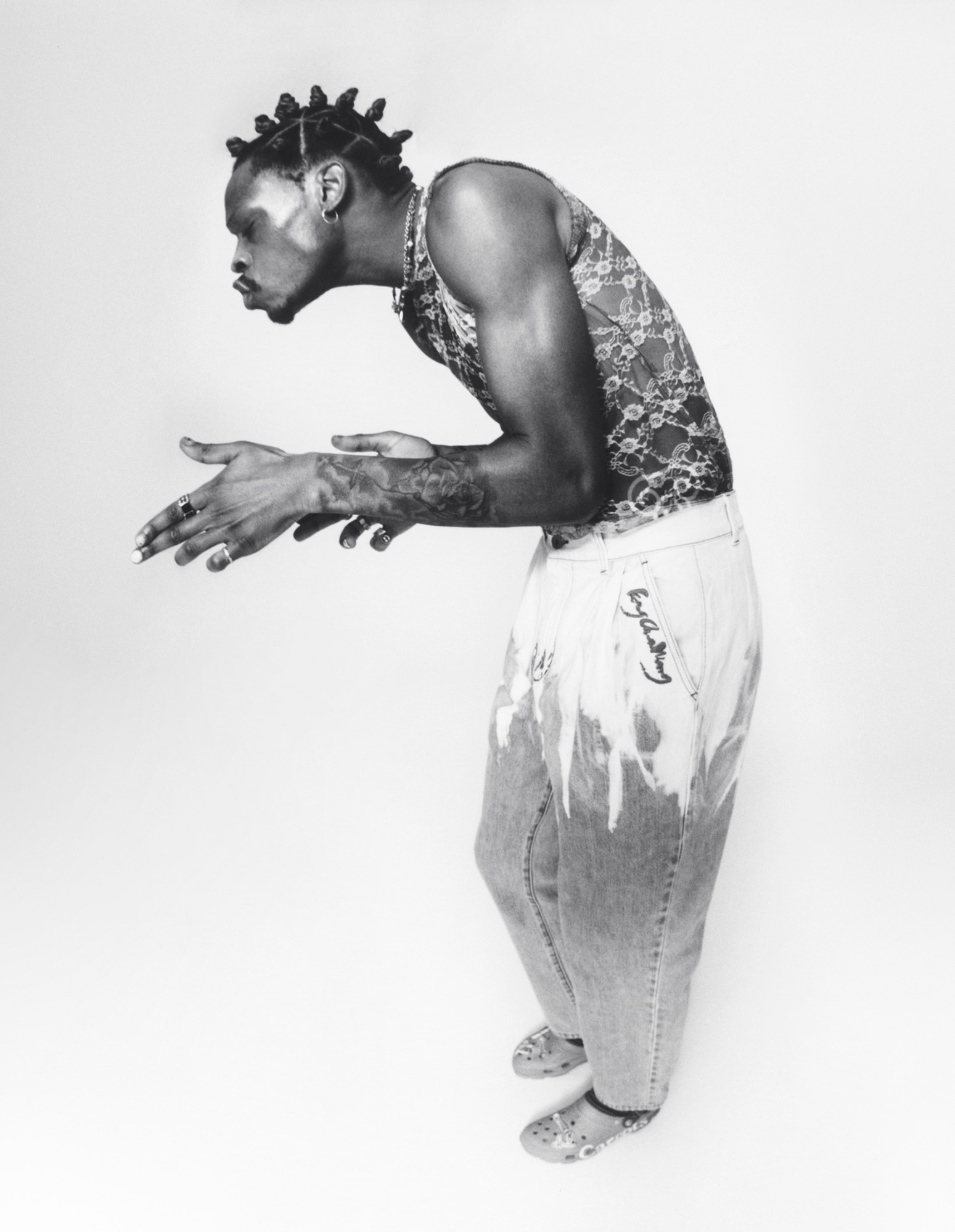
Loshh
Nigerian artist Loshh was born in the Netherlands, grew up in Dublin and now lives in South London. The 23-year-old — who recently released his impressive debut EP, ÍFARADÁ – believes that this journey has shaped him immensely. “In Nigeria, it’s all about how proud we are in what we do; the community, the spiritual elements,” he says. “In Dublin, I hadn’t been granted the space to find myself, so that translated to getting into beef.” Luckily, Loshh had church and with it access to all manner of instruments. “I guess it was like going to the studio,” he says, recounting early memories of a house filled with the sounds of jùjú legend King Sunny Adé and famed gospel singer Yinka Ayefele, as well as the likes of André 3000, Prince and Fela Kuti. “I really grew up within music, not just around it,” he says. “I would see my uncles perform live and from an early age I was the youngest at parties because I went with my mum to faaji.”
You can hear those influences across Loshh’s work — Latin-guitar-laden and percussion-heavy creations that he refers to as “music of the world”. The aforementioned EP was created entirely in July 2020, when Loshh locked himself away at producer Santiago Morales’ home studio and laid down his isolation-induced mania. “I couldn’t run from what was going on in the world nor my mind,” he has said, stating that the project is about “perseverance… and the adversity that comes with race, identity and poverty”. The process has brought change to Loshh’s life. “With stability comes more energy to express your truest self. It’s a spiritual thing, I find myself more grounded and at peace.”
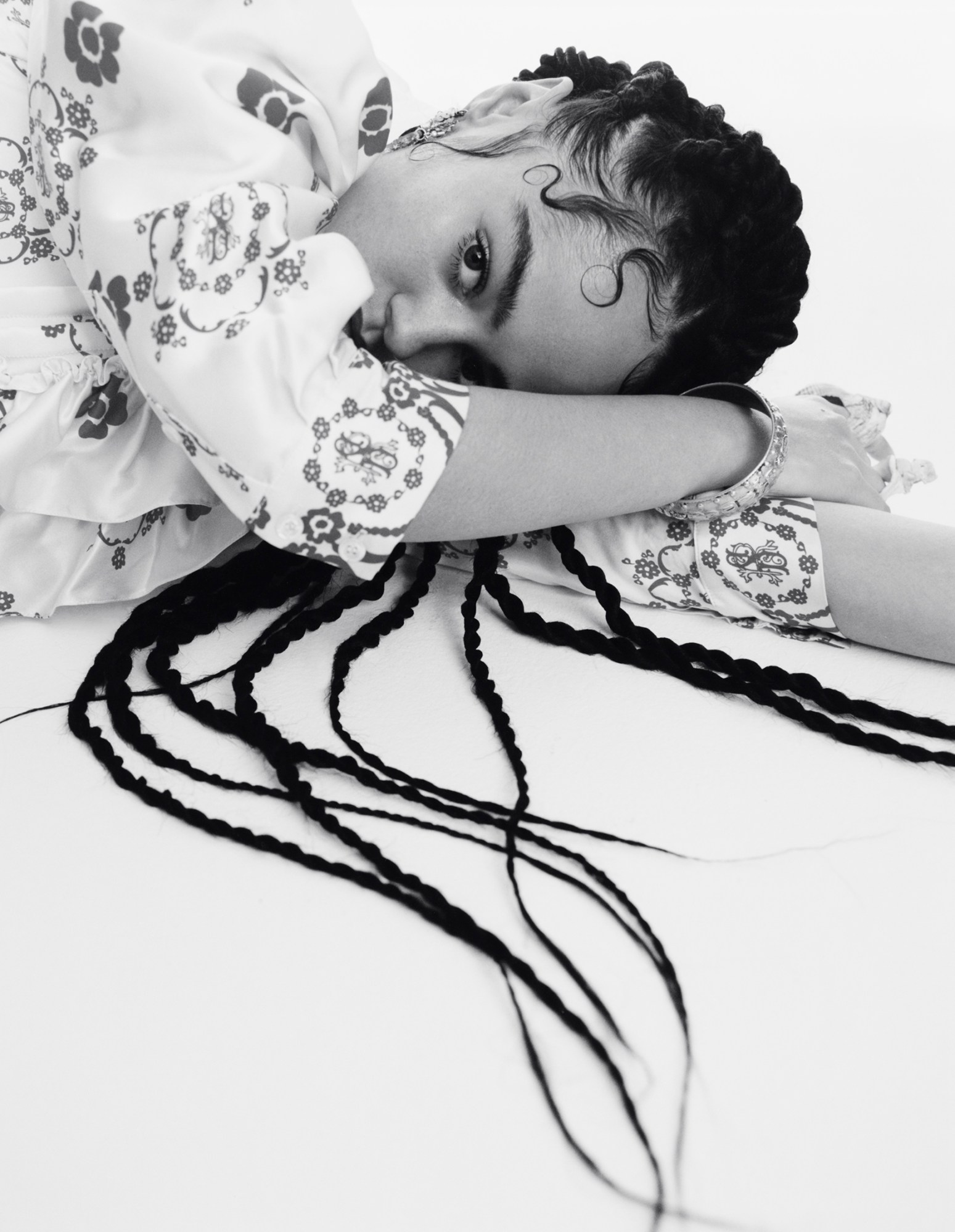
POiSON ANNA
While POiSON ANNA is technically 23, she feels like she’s lived multiple lifetimes. Born and raised in London, the musician — whose intimate vocals possess all manner of power – credits the city for teaching her to, “understand realism, why things happen the way they do, which paths to follow and which to avoid”. One path she’s always followed is that which leads into nature. “That was the stuff that excited me, made me bolder,” she says. She credits the sun, the moon and the earth as her three main influences and makes music in order to express her emotional truth. “It could be described as political at times, unruly and transcendental,” she says of her art.
When she began writing music in her teens, POiSON ANNA’s lyrics revealed a deep hurt and she entered into a period of self-discovery. “I soon learnt that expressing myself like this would be the way to heal,” she says. “I believe we all have purpose. I was gifted mine when I was quite young: I’m here to heal and I do so with my music and my being.” The healing process has led to the creation of POiSON ANNA’s debut mixtape, EXCELSiA. You can expect, she promises, “sadness and understanding: wild music that exaggerates emotions. Life is so much more vibrant when led with intuition… I like to help people rediscover that.”
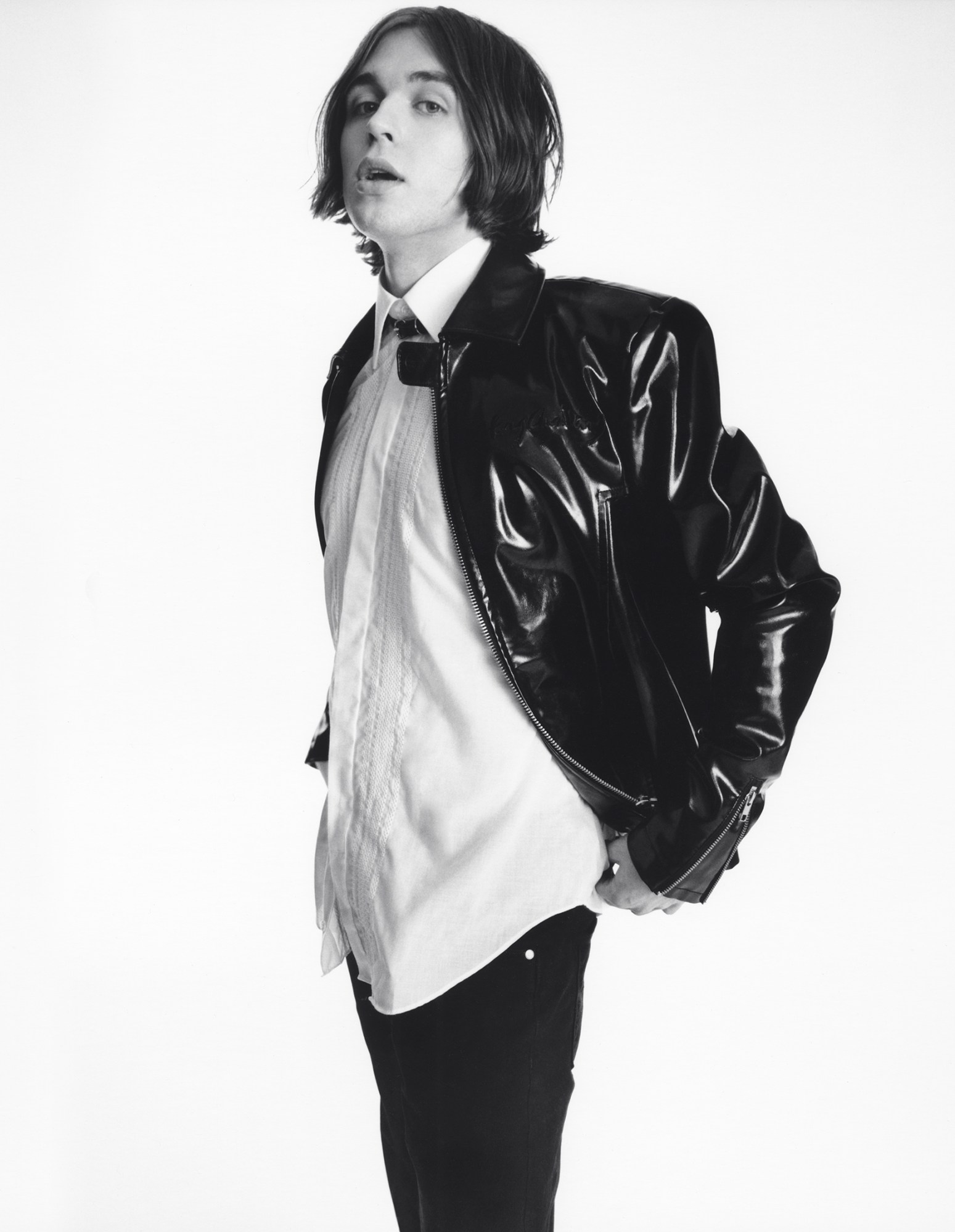
Static Dress
A lot of people miss the glory days of MySpace and 00s emo. Olli Appleyard doesn’t. Still in his early 20s, he missed the movement but lived it vicariously through his older sibling and borrowed copies of Kerrang! Fast forward to today and Olli — a cherry-red-haired alt heartthrob from Leeds — and his friends are making post-hardcore music as Static Dress. “We just set out to make music that we liked,” he says. “We didn’t intend to fall into any particular genre.” Somehow they landed the ultimate balance of heavy, screamed outpourings and hooky, heart-wrenching melodies. Their explosive 2020 single safeword was perfect and came accompanied by a self-directed music video with their signature VHS aesthetic.
Despite being stripped of the live performances they so craved in their nascent career, the band have spent the pandemic embarking instead on a series of high-concept livestream events. “I want to inspire other artists to try harder, especially within the alternative world,” Olli says of their creative endeavours. “We have bands that are pushing out the same ideas for 10 years straight, then turning back and saying, ‘You need to support your scene’. Can you blame people for not wanting to come to shows? There’s no excitement anymore.” Except, now there is. Now, Static Dress have taken a defibrillator to the scene and are on the verge of releasing their best work yet. “I want to create work like my heroes did when I was growing up. I want to put the art back in being an artist, rather than just a stage personality with a soundtrack.”
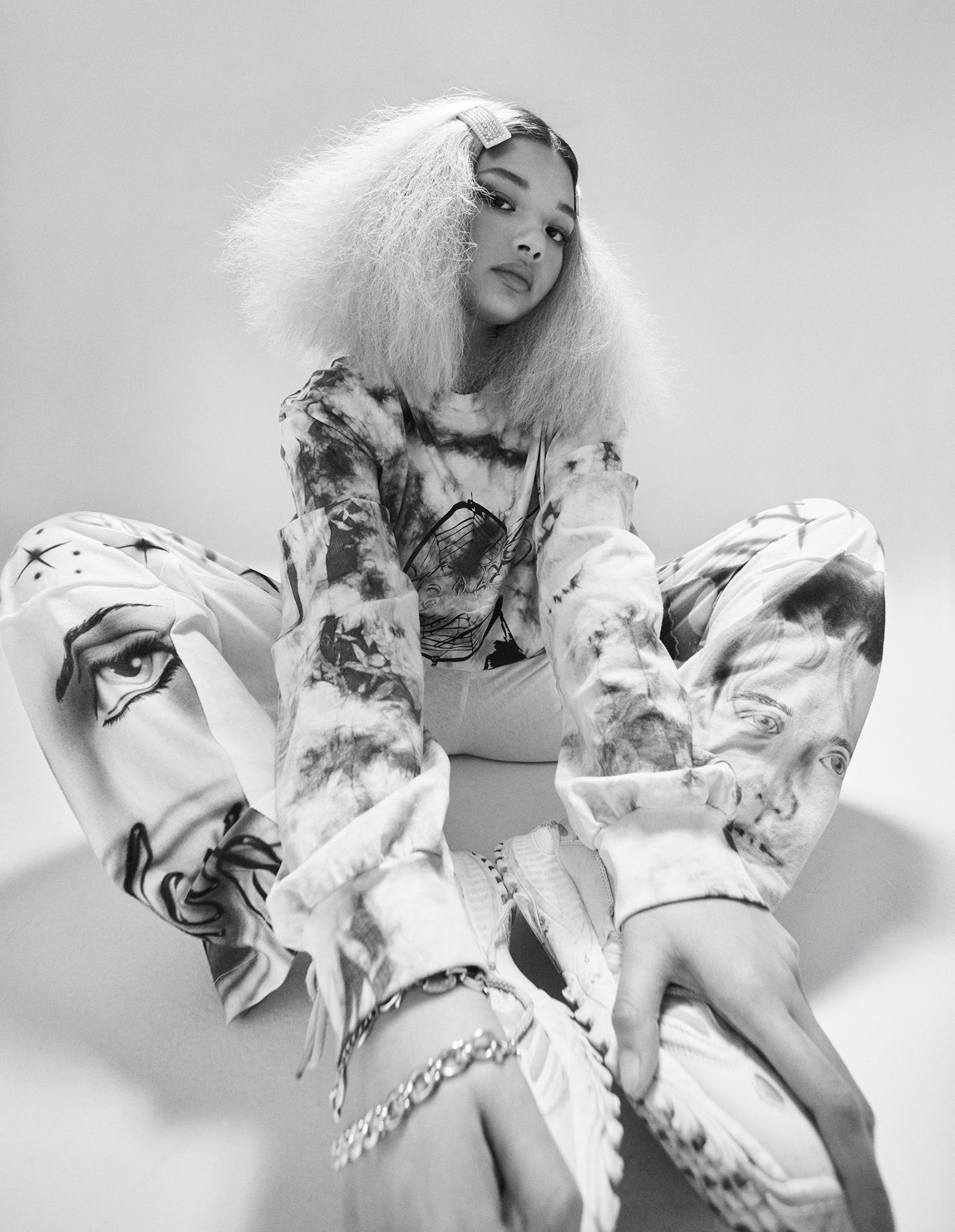
Lucy Tun
Lucy Tun has always wanted to feel understood by others. “I now realise that won’t happen until you allow people the pleasure of seeing your work, your vision, your mind,” the North West London singer, producer and DJ says. “It can feel emotionally draining but it really does pay off.” Now 23 and releasing lo-fi pop with a danceable beat (case in point: the playful, hazy Every Thursday Night), the music she writes is inspired by internet culture and her mother, but often springs from her day-to-day life. “Someone might say a phrase in the morning that I’ll end up basing an entire song around it that afternoon,” she says, of what she calls a sort of ‘sonic diary’. “A lot of my songs are made to bottle up moments in time, they come from painful but important experiences. If I’m in a bad spot, at least I know I’ll be able to make a good song out of it.”
With the result (“bigger, more polished, more mature”) destined to bless your speakers in 2021, Lucy has given herself a side mission: to raise awareness of the atrocities happening in her Myanmar homeland. “There’s a military coup happening and it’s on the brink of civil war. Being British-Burmese and having fans there, I see young Burmese girls like me watching the world through a phone, like young British girls do — sharing TikToks, watching tutorials on YouTube, listening to playlists. It’s an escape for both parties. We’re both living through a pandemic, but they’re also living in a war zone. If I can make one person Google what is happening over there or donate to the cause then I believe I’m doing something right.”

KAM-BU
No one’s doing it quite like 24-year-old KAM-BU. The Nottingham-born, London-raised rapper has assertive lyrics, an impressive list of collaborators and several urgent messages set to wavy British hip-hop. After commanding our attention with his Lord Apex-featuring Different and the horror-inspired, strobe-heavy video for Are You On?, he levelled up with Black on Black, with its cinematic string- laden production by Leon Vynehall. The track is an epic dissection of community, politics and race that he wrote as “an ode to the Windrush, the descendants and all diasporas in foreign lands”. Its music video was shot in the St Ann’s district of his Nottingham hometown, featuring guest appearances from friends and old photographs of his Jamaican family. “It’s a thank you for the risk they took and the culture they brought; and an exploration of experiences and emotions I’ve felt growing up as a third-generation migrant.”
Aside from music, Kam is into hanging out with his chow chow Simba, doing conservation work and escaping to areas of natural beauty. “I seek refuge in green spaces — it helps quiet the mind,” he says. “I often think about the future of the planet and it got to a point where I couldn’t just stand by and watch, but rather get involved and get stuck in. I try to do my bit for the community.” He does his bit for his fashion designer friends, too, having walked for Martine Rose and appeared in a Bianca Saunders campaign. Now, with festival bookings across Europe in the bag, Kam is feeling positive; in part also thanks to progress made, green goals set and the expansion of carbon capture. “I’ve got some fire tracks and videos in the pipeline too… expect them to be pushing the envelope, exceeding doubt and undeniably authentic”.
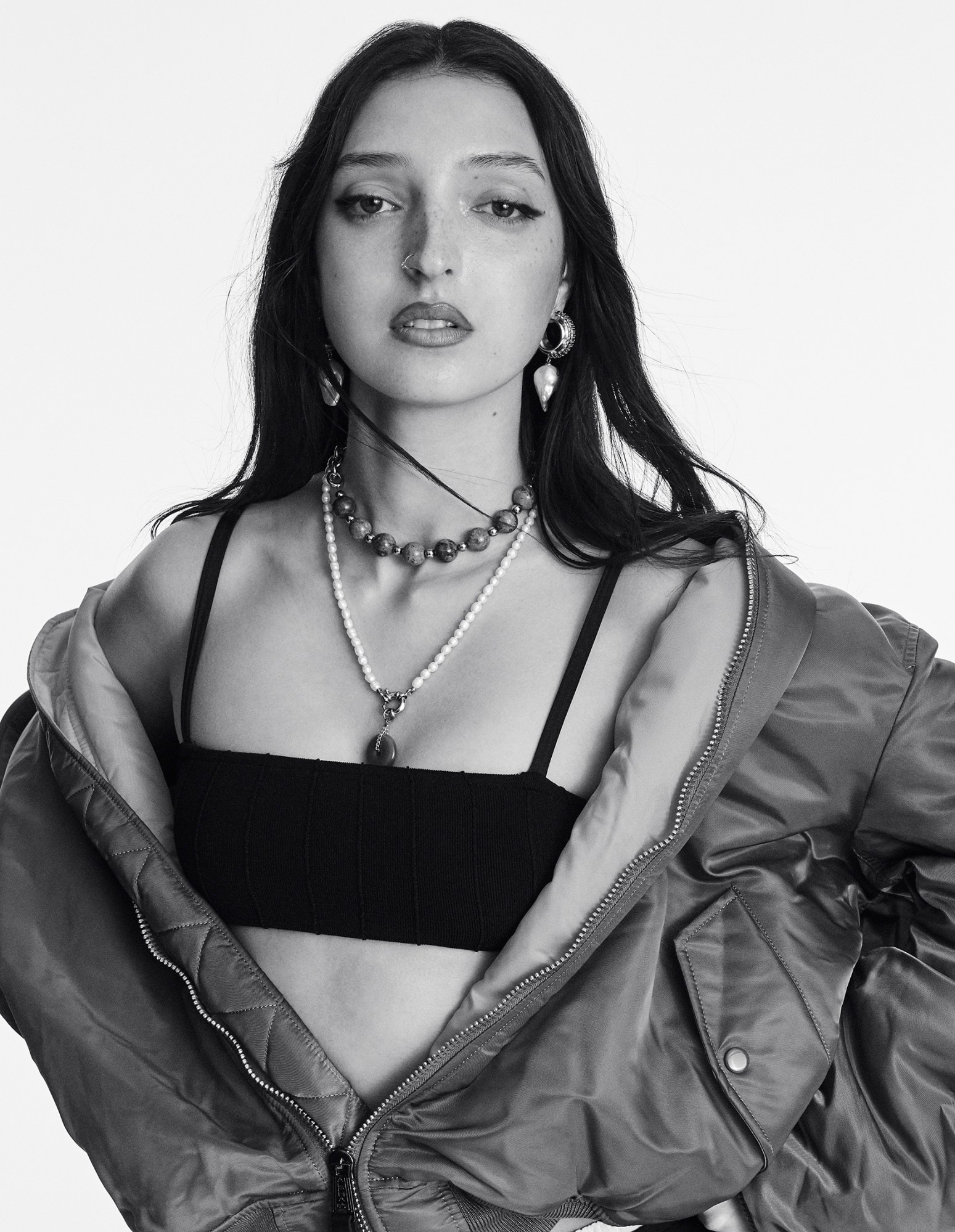
LOLA
A year ago, London-based artist LOLA released her otherworldly debut EP, The Sleeping Prophet, full of spiritual musings and digital avatars that told of feeling overwhelmed by negative voices. The 24-year-old’s project was named after her favourite clairvoyant, an American who gave readings while unconscious. LOLA is very spiritual and has long been fascinated by prophecies and reincarnation. If she was to be reincarnated as an animal, in case you’re wondering, she’d come back as an owl. “I’ve had so many dreams about flying,” she says, “so maybe my subconscious is trying to tell me that I belong in the air.”
LOLA’s whole world has shifted in the past 12 months. “My priorities have changed. I’m more sure of myself, more fearless, more direct,” she tells us. With this new attitude, the musician – whose parents raised her on a diet of powerful female artists like Björk, Kate Bush and Erykah Badu – has recently started to take inspiration from the 90s and 00s R&B and hip-hop she grew up obsessed with instead. “There’s something quite full circle about it. I remember having this literal need to write my own songs, to articulate myself, and to be as cool as those girls on MTV,” she says. “I’m excited to start paying tribute to those influences in my own work.”
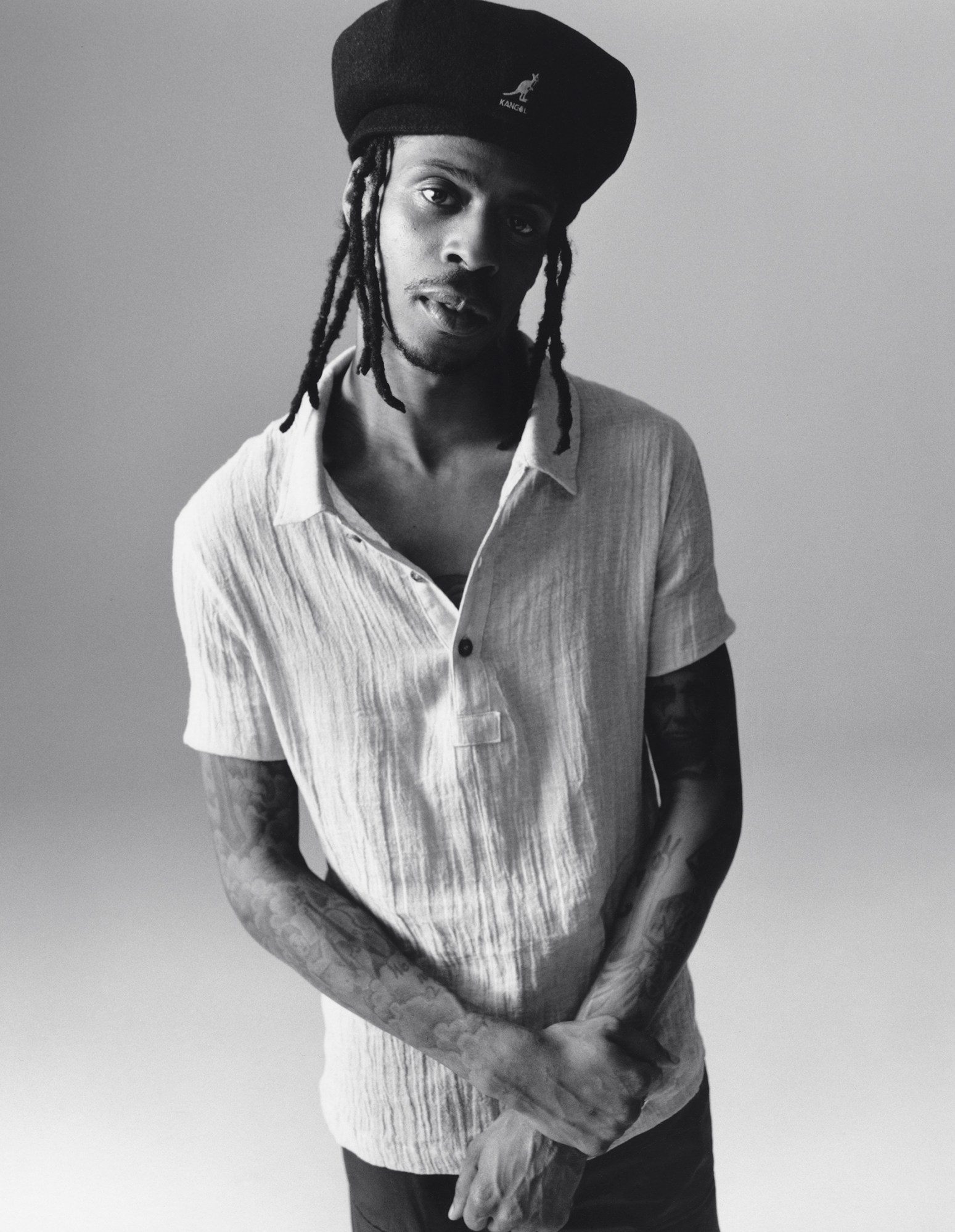
Goya Gumbani
Brooklyn-born Goya Gumbani moved to London in his teens but reckons it was his Canarsie neighbourhood that shaped him “for good, bad and ugly”, noting that, “it was like a big pot of everything and everyone”. He first dipped his toes into music when he attended a Brixton youth club with his cousin – “all the ‘rappers’ hopped on the same beat and made a song… my verse was trash but I fucked with it,” he remembers. Now 30 but feeling “ageless, if I’m being real”, Goya’s verses are no longer trash. Quite the opposite. Making mellow, 90s-influenced hip-hop that he describes as “big raps on sample loops”, everything culminated with the release of his smooth Truth Be Sold EP at the start of this year. Over off-kilter beats by producer Oliver Palfreyman, he reflects on life, death and materialism. “My shit, for me, is expression and conversation with self,” he explains.
When Goya’s not making music, he can be found fronting campaigns for Nicholas Daley and walking for Virgil’s Louis Vuitton in Paris. He wears clothes well. Influences come at Goya from all directions, but he especially looks to “KA for his wordsmith shit, Prince for the vision and wisdom, and Serena Williams for her confidence and knowledge”. And while he’s still figuring out exactly what his big plan is, it’s perhaps that holy trinity that inspired him to write his forthcoming project, When The Past Bloomed, and who got him excited by the prospect of change. “I’ve been by myself most of the year,” he tells us. “But it’s been enlightening… I’ve had time to work on myself.”
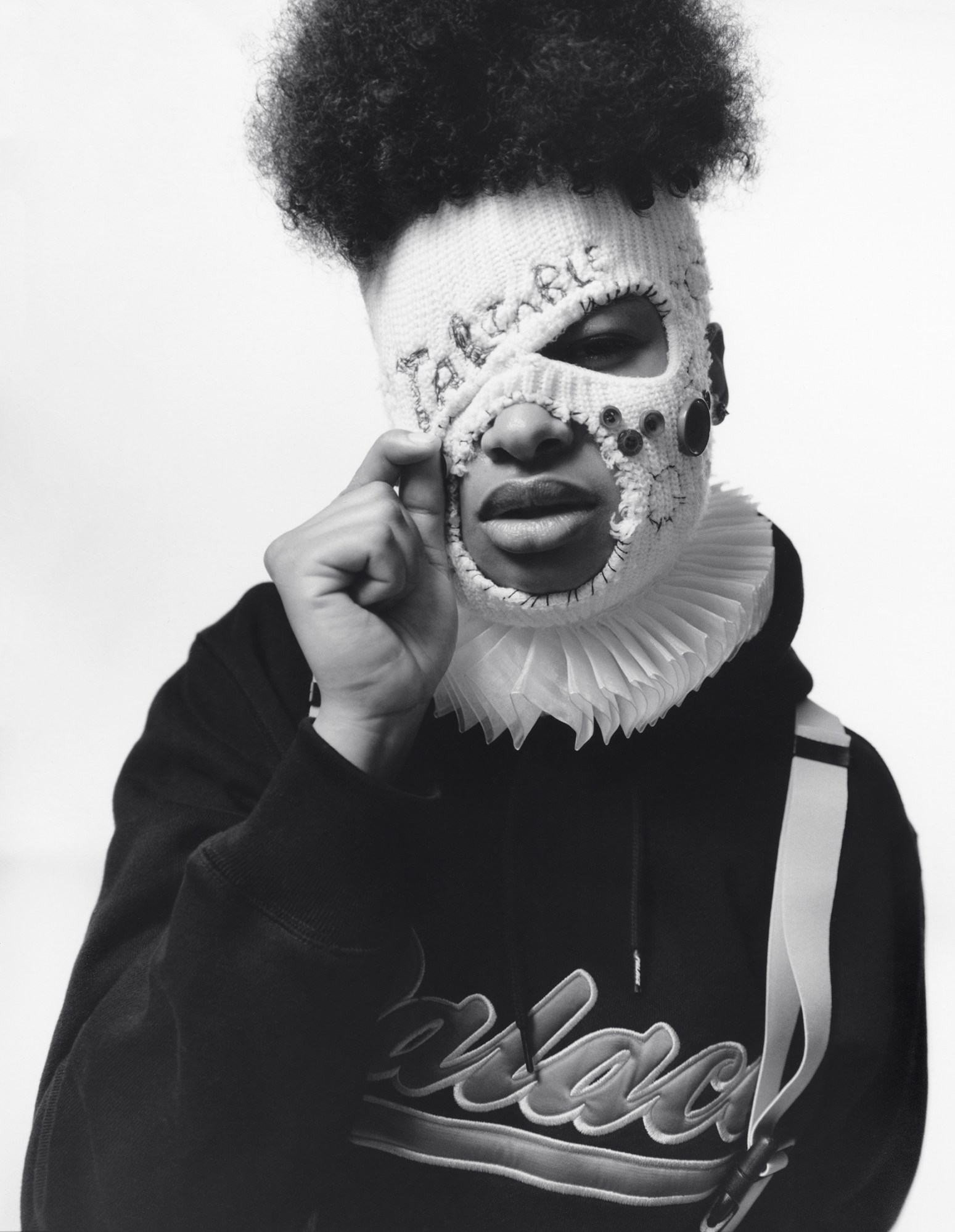
TaliaBle
“This area has been an ever-sprouting concrete flower,” TaliaBle says of Tottenham, her neighbourhood since birth. “Living here has given me thick yet malleable skin.” Now 22, the musician and multidisciplinary artist makes what she calls “a dysfunctional rap opera”, inspired by the warped dystopia of Salvador Dali’s paintings and the work of Dr Seuss. But it wasn’t until two years ago that Talia began to take music seriously. “I went through my first heartbreak and the switch flicked that I needed to not just store the words away in my diary and silently cry myself to sleep,” she tells us. Interning at UK music platform Keep Hush at the time, she admitted to her now- producer Karl Binarj that she wanted to record something and the rest is history. “He told me that he thinks there’s a diamond within my rust of a voice,” she remembers.
And there really is. Talia is exciting, experimental and punk as hell. From behind her signature balaclava and ruff, her curls sticking out of the top like a crown, she raps in a gravelly voice. “I utilise music as a soundscape catalyst for imaginary world building. It’s a place,” she says. “I really feel like music is an audible book of wonder, where walls can be talking tongues and lagoons are full of caramel and fire is glass and whispers are fanciful sirens and all is well but only until…”
New singles are coming soon, and an album’s on the horizon, too. With a successful run of art projects under her belt – the latest a trippy short film for Charles Jeffrey’s Loverboy – Talia has found herself in an underground art scene of creatives. It’s mostly lo-fi jazz and hip-hop artists; a scene in which spiritualism, LGBTQ rights and racial justice are a real focus for the community. “Izzy Gzowski and muva of Earth put on an iconic event called Babylon Chant Down last summer, where kids from all sides of London gathered for a giant jam session in a park in South. It was truly a lucid vision of where the creative scene can and should be heading. Create out of love and rejoice together.”
Credits
Photography Dan Martensen
Styling William Barnes
Hair Ryan Mitchell at Streeters using Oribe.
Make-up Siddhartha Simone at Julian Watson Agency using CHANEL Les Beiges Summer Light and CHANEL Hydra Beauty Camellia Glow Concentrate.
Photography assistance Liam Clarke and Tom Hill.
Styling assistance Sophie Casey, Nikki Chadwick and Clementine Saglio.
Hair assistance Jazmin Lanyero.
Make-up assistance Isobel Kennedy and Emily Wouters.
Production Elizabeth Cooper and Abbie Cockerell
